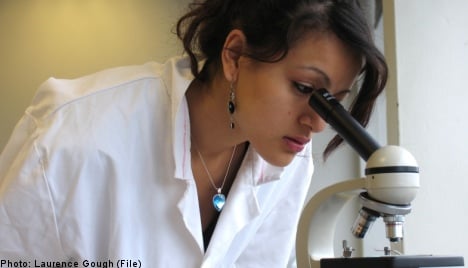On December 9th, the investigative TV programme Uppdrag Granskning raised the issue of the poor conditions often faced by foreign doctoral candidates in Sweden and the negative special treatment they receive at the majority of Swedish institutions of higher education.
A level of financial compensation that often may seem reasonable at home in Pakistan, China or Iran is in fact nothing of the sort in Sweden; this is something doctoral candidates are not made sufficiently aware of in advance. And even if these individuals were aware of the high cost of living or our social insurance system, it is still unacceptable that we use them as cheap labour to perform tasks that are important for us. As scholarship holders, for example, they are not entitled to make use of general benefits such as health insurance, parental insurance, unemployment insurance or pension insurance.
There seems to be a widespread attitude that the responsibility lies with the individual doctoral candidates. An example of how this view manifests itself is when a government agency like the Swedish Institute shirks its responsibility as a coordinator, believing that if an individual accepts financing of €900 a month then that’s their own problem. Disowning the problem, and arguing that if “we” don’t take candidates at the lowest price then somebody else will, is both inhumane and irresponsible.
We have long attempted to elevate the issues regarding the poor conditions of foreign doctoral candidates in order to create a national debate. We do not of course take a negative view of foreign doctoral candidates, a view clumsily ascribed to us on the editorial page of Dagens Nyheter in November. On the contrary, foreign doctoral candidates constitute a very important resource for both Swedish research programmes and Swedish research in general.
It is with this in mind that we consider them deserving of the same treatment as their Swedish counterparts, both in terms of remuneration and social security. Research programmes are more than just programmes; they also make up a large part of the core operations of educational institutions, given that doctoral candidates currently account for about 40 percent of all research at our institutes of higher learning.
For two people performing the same tasks at the same workplace to be treated differently for no other reason than their respective citizenship is as wrong at a Swedish college as it as at a Swedish building site. It is difficult not to be angered by a state of affairs in which the differences are so great that the disadvantaged party finds it difficult to survive in Sweden on the amount received, while also having to remain outside the social insurance system.
In many cases, the doctoral candidates are contractually obliged to return to their home countries upon qualification, as well as having their democratic rights restricted, a point we have written about previously: (Sydsvenskan, 28/9/09, in Swedish). It’s also probable that we can only see the tip of the iceberg. In many cases, universities and colleges fail to sufficiently monitor their doctoral candidates, many of whom are fearful of raising criticisms, not least because they tend to be in a position of dependence towards supervisors.
It’s impossible to avoid the fact that institutions of higher learning bear a lot of responsibility for their doctoral candidates and, as such, it is remarkable that a number of institutions do not have any control over the financing of their candidates. This does not tally well with regulations laying out the responsibilities to be borne by universities and colleges vis à vis their doctoral candidates. Several institutions have put in place minimum levels to be paid upon acceptance of doctoral candidates in order to guarantee them a certain level of remuneration.
But the institutions do not always abide by their own internal rules and there are signs that these minimum levels are about to be reduced at a number of seats of learning. In a report from the Swedish National Agency for Higher Education (Högskoleverket), it emerged that some institutions are mulling a reduction in their minimum levels for the express purpose of bringing in more foreign doctoral candidates. It is however also worth noting that some institutions offer partial financing for their underfinanced doctoral candidates in a bid to bring their pay up to a level more in parity with the doctoral wage.
Foreign doctoral candidates constitute a vital addition to Swedish research programmes and research, but strong action is needed to counter the treatment to which many of them are subjected. Let this then form the starting point for a lively and constructive debate.
To this end, there are a number of questions that need to be raised: Are we, in the long term, scaring off researchers who feel they are being treated as inferiors? What is the image of Sweden that we wish to communicate? What are the conditions we are prepared to accept? And, what grades are our colleges and universities receiving abroad? It is our firm hope that such a discussion will lead to a point where the heads of Sweden’s seats of learning implement strong measures guaranteeing employment for all doctoral candidates. If the institutions of learning do not share this ambition, we hope the minister for higher education and research will prove considerably more decisive.
Lars Abrahamsson, Chairman, doctoral candidates committee of the Swedish Association of University Teachers (SULF)
Martin Dackling, Chairman, doctoral candidates committee of the Swedish National Union of Students



 Please whitelist us to continue reading.
Please whitelist us to continue reading.
Member comments